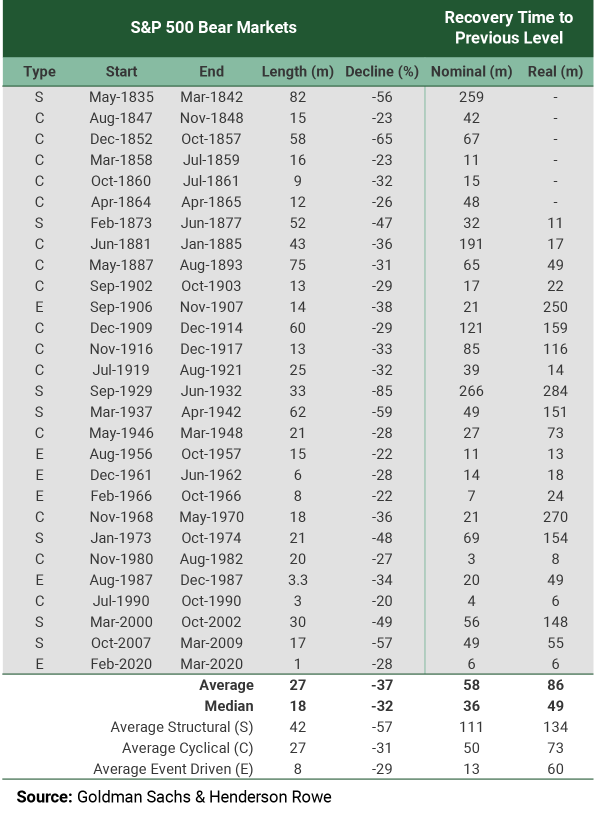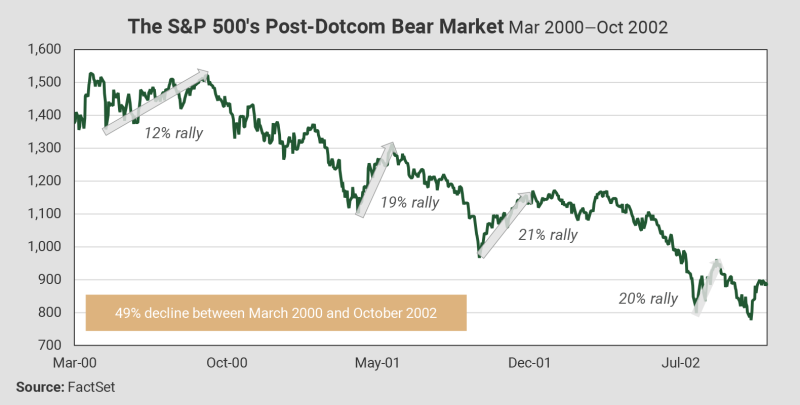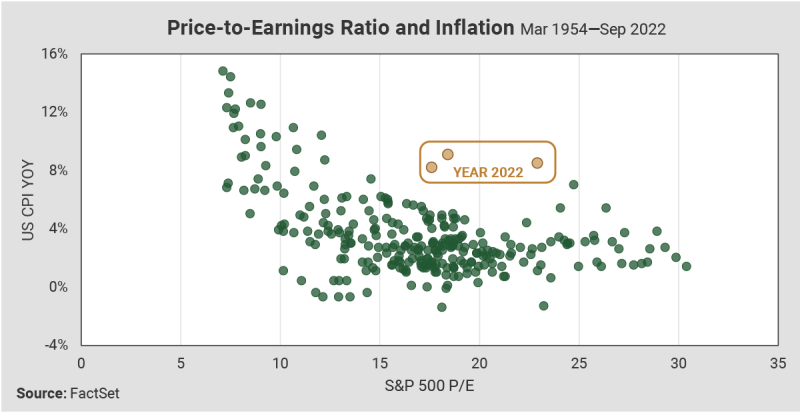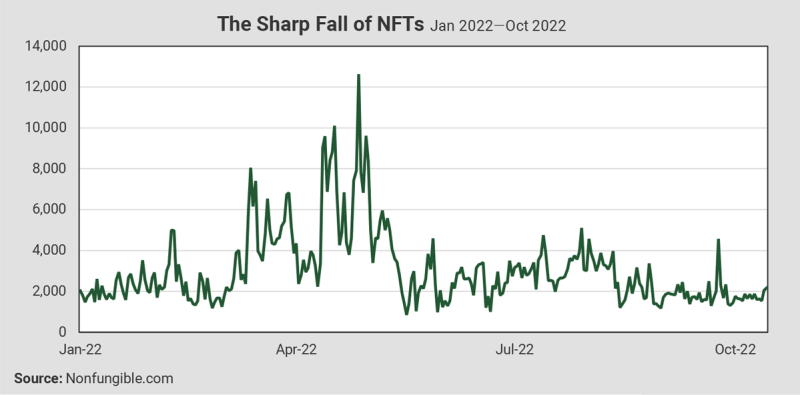Since we started writing this Quarterly, we have had yet another change of what passes for leadership in the UK. Whilst the speed of the Truss defenestration was a surprise, the overall political instability is not. As we previously stated we had, with little enthusiasm, a preference for Truss due to the growth orientated policies but were sceptical that Conservative Party unity would hold regardless of who won the leadership election.
We still think modestly reducing the tax burden was the right thing to do given the wider macro-economic conditions. But even we were surprised of how much Truss and Kwarteng were attempting. It appears too much, too soon and—most importantly—badly handled.
What happens next is anybody’s guess. As usual ‘events’ may intrude and also macro conditions might improve for the better. Had Kwarteng waited, the falling energy prices would have reduced the size of the bailout and perhaps the markets would have been less spooked—who knows?
However, since we are usually asked by our investors, this is our base case for what it’s worth.
We wish him well but our ‘Seas’ short-term view is that Sunak—assuming he even survives until the next election—will probably lead the Conservative Party to a large election loss, possibly on par with 1997 depending on conditions at the time. We base our view on two elements.
The first element is the economics. As we have pointed out earlier, the financial conditions we experience today are because of previous policies. We are not qualified to opine on whether the Covid lockdowns were necessary but there is no doubt they were divisive and caused immense – and uneven – damage to the economy which has not fully healed. They also created a huge amount of new debt of the type usually associated with a major war, though without any of the related economic activity. Dealing with this would have been challenging enough but this has been compounded by the massive money printing by the Bank of England, a particularly questionable response given that the collapse in demand was likely to be temporary.
It was into this volatile mix the Truss administration blundered. As we identified in our last note promising tax reductions whilst dealing with deficits was always going to be a difficult balancing act and we were sceptical the Conservative party would follow through with it and so it proved to be.
Removing a new administration after a few days of operation because ‘it’s what the markets wanted’, and claiming all the national economic problems are result of just one speech, is not remotely credible. It ignores the various shortcomings of the BoE—something even its recent governor & deputy governor have highlighted—or the multi-year actions of the previous regime. It is akin to throwing human sacrifices into a volcano to appease it: it may please the crowd but doesn’t really deal with the real problem. It also sets a precedent that the various vested interests that removed Truss may come to regret, that the actions of various financial markets should dictate immediate changes in government.
So, we now have the new Hunt/Sunak regime triggering some of the harshest fiscal tightening seen in the UK for generations, where at the same time there is both monetary tightening and a cost-of-living shock. This is likely to be deeply unpopular with the general population. It’s against the manifesto the Government was elected in on and, worse for the Conservatives, it’s likely to be especially detrimental to some of the Red Wall seats that the Tories depend on for their majority.
Our biggest concern is that ‘Hunak’ is doing this into an already-slowing global economy, and doing it by using a particularly damaging mix of taxes for future growth. We suspect this is likely to end badly and the evidence both from the UK and abroad is not encouraging; it tends to be counterproductive. Indeed, many of the productivity and growth issues we are seeing in the economy today appear to start with the Coalition’s austerity policies starting in 2010. As one of the principal architects of these problems, we have difficulty seeing Sunak being able to distance himself from it.
The second point is the politics. Winning a fifth election victory was always likely to be hard in the UK political system, even more so given the suspect track record of the past 12 years. It is likely to be even harder for Sunak given that he lacks the support of nearly half his own MPs and a big chunk of his own party membership. His coronation lacks any sort of legitimacy or widespread support which—like Gordon Brown before him—we suspect is likely to dog his brief premiership.
We continue to believe his career experience is very much overstated and he lacks competence. His time in the Treasury did nothing to dissuade us of this. If alleged experience of markets is the most important factor at this current time, as many of Sunak’s supporters are claiming, then Sajiv Javid is far better qualified. Yet he isn’t being mentioned probably because it’s about politics not fundamentals. Politically, we have seen nothing so far to suggest Sunak has any broad popular appeal and struggle to see an extremely wealthy ex-banker as an obvious unifying figure to champion austerity into a cost-of-living crisis.
Based on this, we struggle to see any sustained recovery in the Conservative polling and with it we suspect a resumption of infighting as their fate becomes clear.







